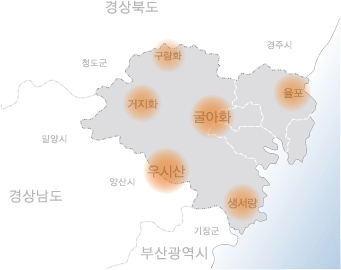|
Jinhan
Jinhan () was a loose confederacy of chiefdoms that existed from around the 1st century BC to the 4th century AD in the southern Korean Peninsula, to the east of the Nakdong River valley, Gyeongsang Province. Jinhan was one of the Samhan (or "Three Hans"), along with Byeonhan and Mahan. Apparently descending from the Jin state of southern Korea, Jinhan was absorbed by the later Silla, one of the Three Kingdoms of Korea. History Jinhan, like the other Samhan confederacies, arose out of the confusion and migration following the fall of Wiman Joseon in 108 BC. Some Chinese records state that refugees from the Lelang area sought asylum within the state of Jin (now Jinhan) after political turmoil of the Qin dynasty. Book of Wei - Volume 30's some part are record left by Wei envoy who visited ''Okjeo'' and ''Jinhan'' after the victory of the ''Goguryeo–Wei War'' and the '' Battle of Giryeong'' at the late 3rd century. Thus, Jinhan's 12 countries are records of quasi-independ ... [...More Info...] [...Related Items...] OR: [Wikipedia] [Google] [Baidu] |
Samhan
Samhan, or Three Han, is the collective name of the Byeonhan, Jinhan, and Mahan confederacies that emerged in the first century BC during the Proto–Three Kingdoms of Korea, or Samhan, period. Located in the central and southern regions of the Korean Peninsula, the Samhan confederacies eventually merged and developed into the Baekje, Gaya, and Silla kingdoms. The name "Samhan" also refers to the Three Kingdoms of Korea. ''Sam'' () is a Sino-Korean word meaning "three" and ''Han'' is a Korean word meaning "great (one), grand, large, much, many". ''Han'' was transliterated into Chinese characters , , , or , but is unrelated to the ''Han'' in Han Chinese and the Chinese kingdoms and dynasties also called ''Han'' (漢) and ''Han'' (韓). The word ''Han'' is still found in many Korean words such as ''Hangawi (한가위)'' — archaic native Korean for Chuseok (秋夕, 추석), ''Hangaram (한가람)'' — archaic native Korean for Hangang (漢江, 한강), ''Hanbat (한밭)'' — ... [...More Info...] [...Related Items...] OR: [Wikipedia] [Google] [Baidu] |
